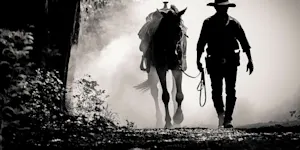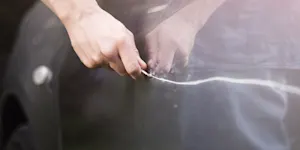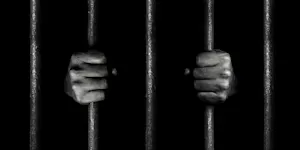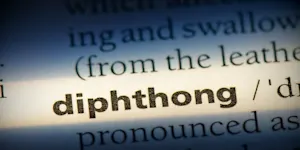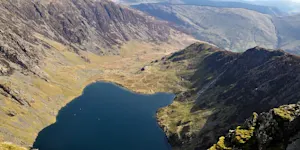What Makes This Word Tick
"Eldritch" has an enchanting and eerie vibe—a curious balance of the mysterious and the otherworldly. It perfectly captures the unsettling, unknown realms that might just be hiding around the corner. The term conjures images that are often unusual or bizarre yet fascinating all the same.
If Eldritch Were a Person…
Imagine someone who walks through life with a peculiar air, whispering secrets of long-forgotten places and times. This person would have an aura that compels you to listen—a bit odd, perhaps, but with stories so captivating you can't help but lean in closer.
How This Word Has Changed Over Time
Originally rooted in Scottish folklore, "eldritch" initially referred to something spectral or unwholesome. Over time, the word has evolved to include not just ghosts and ghoulies, but anything that might make the hairs on the back of your neck stand up—in a good way! Today, it fuels our fascination with the mystical and unknown.
Old Sayings and Proverbs That Use Eldritch
Well, "eldritch" isn't exactly a staple in folksy wisdom, but it brings a certain supernatural charm to phrases like "eldritch horror," which describes something so bizarre it's almost entrancingly chilling. Think of this as language's version of a ghost story around the campfire.
Surprising Facts About Eldritch
An eyebrow-raising tidbit: "eldritch" isn't just a literary darling. In the gaming world, it's cropped up in various titles, adding an air of mystery and suspense to gameplay. It remains popular in the realms of horror fiction, where it stirs mental images of the eerily unknown.
Out and About With This Word
This linguistic wanderer is at home in a haunted mansion, a ghost story, or perhaps lurking in the mists of a dark forest. It's just as comfortable in the midst of a chilling supernatural yarn shared by candlelight. You'll find "eldritch" wherever the weird and wondrous dwell.
Pop Culture Moments Where Eldritch Was Used
Back in the day, H.P. Lovecraft popularized the term in his fantastical tales of unfathomable cosmic horrors. More recently, TV series dealing with the bizarre, like "Stranger Things," tap into that same eldritch fascination, drawing us ever closer to the edge of our seats.
The Word in Literature
"Eldritch" is a poet's delight, offering rich descriptive power for writers of the strange and chilling. Authors from Lovecraft to Stephen King have wielded it to evoke settings where the natural order blurs with the surreal. Its presence often denotes a world teetering just beyond reality's edge.
Moments in History with Eldritch
Imagine the Salem witch trials—an era cloaked in superstition and fear. Though not explicitly uttered in historical speeches, "eldritch" fits the tenor of those times, brimming with tales of unworldly happenings and inexplicable occurrences whispered about by candlelight.
This Word Around the World
While "eldritch" might not directly translate in every language, its essence is understood worldwide through tales of supernatural happenings—be it ghostly figures in English folklore, specters from Japan, or the goblins in Irish lore. Each culture has its own way of expressing the eldritch allure.
Where Does It Come From?
Hailing from the English-Scottish borderlands, "eldritch" is thought to blend the Old English words "ælf" (related to elves) and "rīce" (realm). Whether they're frolicsome faeries or eerie apparitions, the word reminds us that there's a realm beyond our own that beckons to be explored.
How People Misuse This Word
"Eldritch" sometimes gets tossed around to describe anything merely weird or unpleasant, when it's meant to convey an unsettling, otherworldly quality. It's not just strange—it's vertiginously mythic!
Words It’s Often Confused With
Weird: While both imply something strange, "eldritch" usually hints at a supernatural element.
Strange: This suggests unfamiliarity but lacks the spectral connotation of "eldritch."
Eerie: Although eerie things can be eldritch, the latter carries more weight of the fantastical.
Additional Synonyms and Antonyms
Synonyms for "eldritch" include "uncanny," "ghostly," and "otherworldly." As for antonyms, consider "mundane," "ordinary," and "natural," all of which firmly ground us back in the every day.
Want to Try It Out in a Sentence?
"Hidden in the fog-drenched moor was an eldritch glow that beckoned the brave and foolish alike to discover its source."

